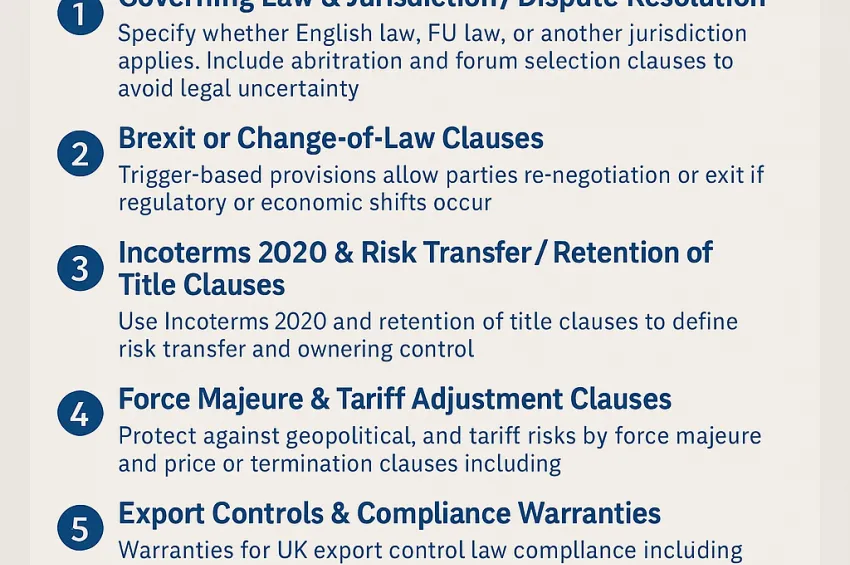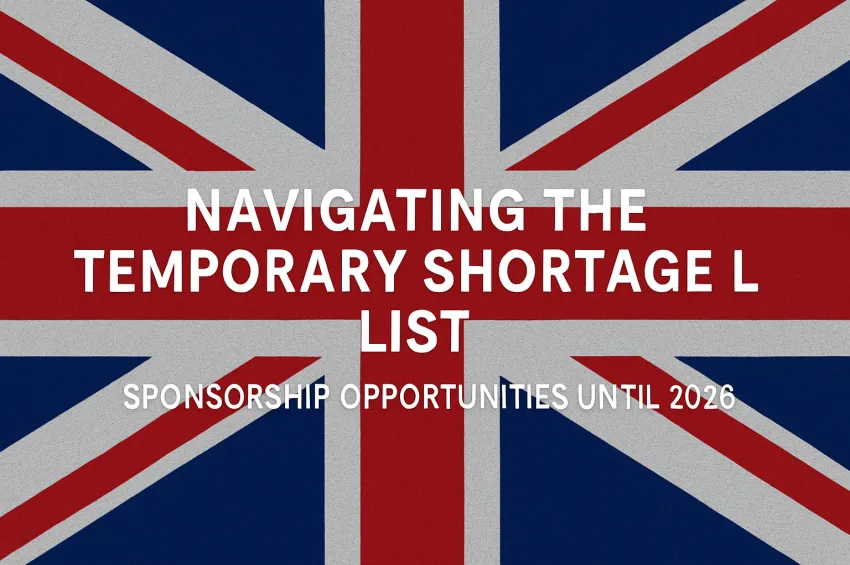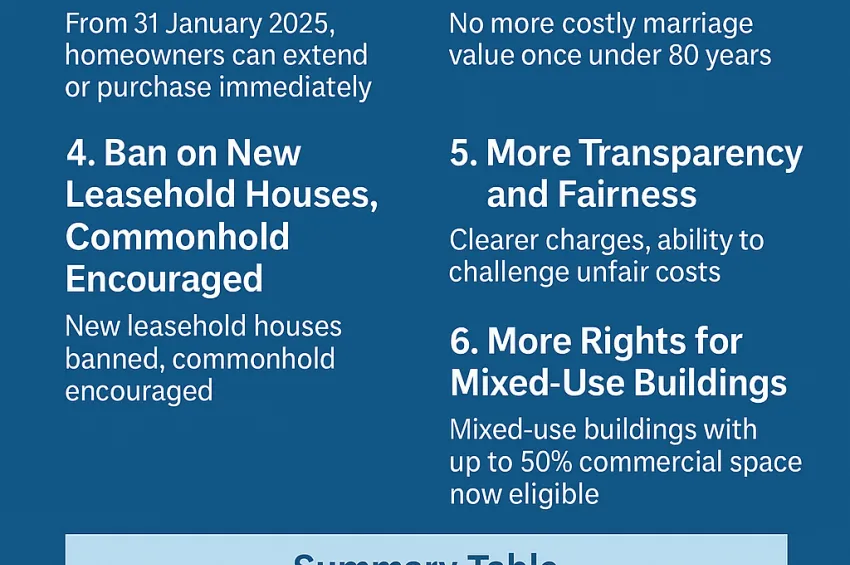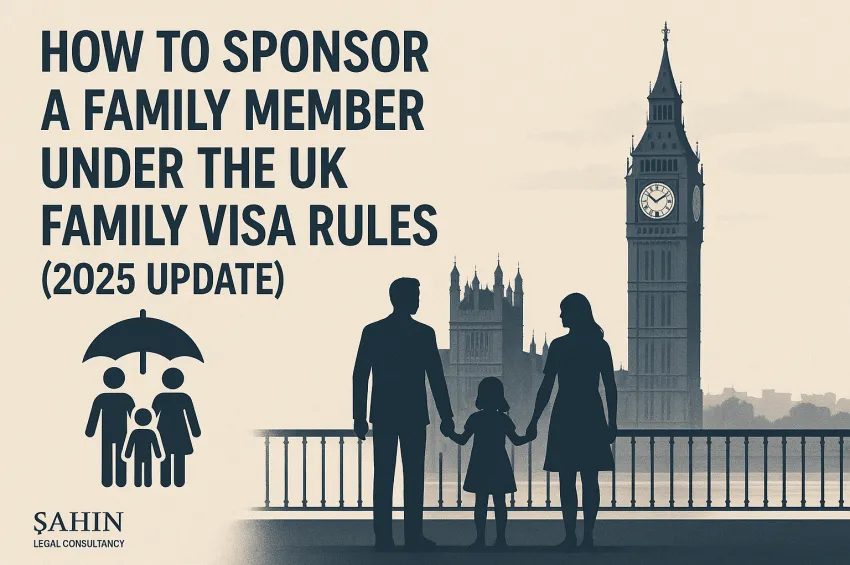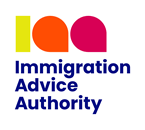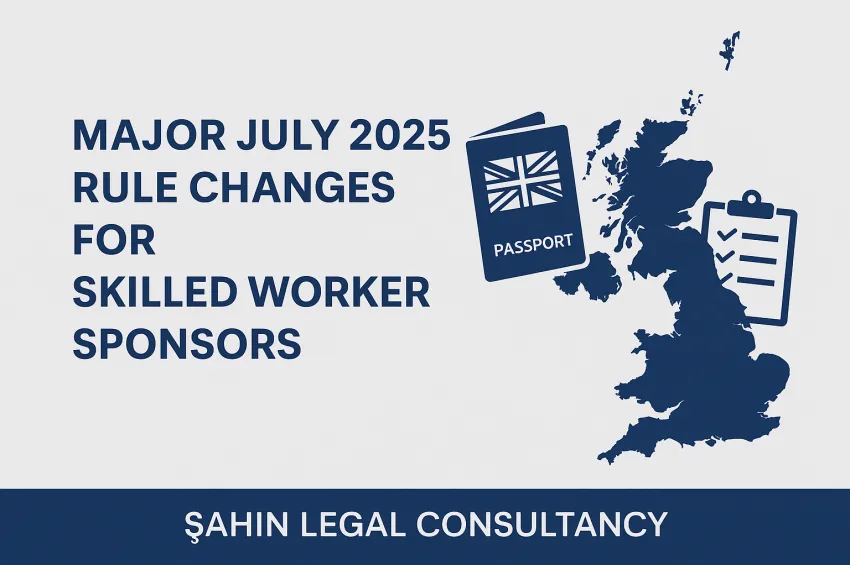
Introduction: The UK’s immigration system is undergoing significant tightening in mid-2025, especially affecting the Skilled Worker visa route. On 22 July 2025, sweeping new rules come into force that will substantially raise skill and salary requirements for sponsored work visas . These changes were confirmed by a Statement of Changes to the Immigration Rules published on 1 July 2025, implementing proposals from an earlier government White Paper.
This development is crucial for corporate sponsors and employers who hire foreign talent, individual migrant workers aspiring to work in the UK, and immigration legal professionals advising on compliance. In this post, we provide a detailed overview of the latest guidelines and updates – focusing on the new rules effective July 2025 – and how they differ from the old regime (which is now obsolete). The tone is formal and legally oriented to ensure clarity on these important regulatory changes.
Higher Skill Threshold: Return to RQF Level 6 (Graduate Level)
One of the most consequential changes is the increase in the minimum skill level for sponsored roles under the Skilled Worker route. Effective 22 July 2025, jobs must be at Regulated Qualifications Framework (RQF) Level 6 or above (graduate level) to qualify for a Skilled Worker visa, up from the current RQF 3 (A-level) . In practice, this reverts the skill requirement to what it was before 2020 – essentially restricting general work visas to graduate-level occupations only.
-
Occupation Codes Affected: Approximately 180 occupation codes that were previously eligible at RQF 3–5 will become ineligible for new sponsorship after July 21, 2025 . These likely include many roles in sectors such as hospitality, retail, administrative support, and certain trades that had been opened up under the post-Brexit points system. Employers will no longer be able to sponsor new work visa applicants in those roles unless an exemption applies (see below). Examples: chefs, restaurant managers, care workers, lab technicians, and various junior roles that were allowed under RQF3 may be affected, unless they appear on a designated shortage list. This is a significant contraction of the eligible roles for work visas, aimed at refocusing sponsorship on higher-skilled jobs.
-
Transitional Measures for Current Workers: The Home Office has built in some transition provisions to avoid disrupting those already on Skilled Worker visas in lower-level roles. Migrants who already hold a Skilled Worker visa in an occupation below RQF 6 can continue in their jobs and will be allowed to extend their visas or change employers in the same occupation code even after the rule change . In other words, if someone is lawfully in the route in a now-ineligible role, they are grandfathered in under the old rules for the purpose of extension or employer switch. However, no new entrants can be sponsored into those roles from abroad or by switching routes after July 22. Another important concession is that if a sponsor assigns a Certificate of Sponsorship (CoS) on or before 21 July 2025 for a role at RQF3–5, a visa application for that CoS can still be made after 22 July under the current rules . This effectively gives employers a last-minute chance to lock in sponsorships under the old criteria, provided the CoS is issued before the deadline. Smart sponsors are rushing to assign any needed CoS by 21 July 2025 for roles that will soon become ineligible .
-
Exceptions – Shortage and Transitional Lists: To soften the impact on certain key jobs, the government is introducing a Temporary Shortage List (TSL) to run alongside the existing Immigration Shortage Occupation List (ISOL). Roles that are below graduate level but considered essential for the economy or public services may appear on these lists, allowing continued (but temporary) sponsorship. Under the new rules, any occupation below RQF6 will remain eligible only if it is on either the ISOL or the new TSL . For example, adult social care workers – a critical shortage area – will still be sponsor-able because they are on the lists. Notably, the government has explicitly carved out adult social care roles (SOC 6135 care workers and 6136 senior care assistants) to remain eligible until July 2028 , longer than other short-term roles, reflecting the acute need in that sector. The Temporary Shortage List itself is a transitional measure: it features over 60 occupation codes at RQF 3–5 deemed important for the UK’s industrial strategy or infrastructure . These might include certain construction trades, transport workers, and other medium-skilled jobs. However, the TSL is strictly time-limited – all roles on it will be phased out by 31 December 2026 (meaning they will no longer be eligible for sponsorship after that date) . The only exception again is social care, extended to 2028. This indicates the government’s plan to completely eliminate sub-graduate work migration by end of 2026, after a short grace period for critical roles.
-
Added Sponsorship Conditions for TSL Roles: Sponsors using the Temporary Shortage List will face additional requirements. According to the new policy framework, employers must have a “Workforce Strategy” and show evidence of efforts to recruit from the domestic UK labor market and investment in training UK workers when sponsoring under TSL roles . This is reminiscent of the old Resident Labour Market Test in spirit – essentially, it won’t be as simple as sponsoring someone just because the role is on the list. The Migration Advisory Committee will oversee which roles stay on the TSL and for how long . These extra conditions underscore that the TSL is an exceptional route, not a loophole to exploit easily.
In summary, from 22 July 2025 most new work visa applicants must be headed into graduate-level jobs. Employers and migrants in lower-skilled roles should be aware that the window for sponsorship is closing, and only a narrow set of shortage roles can still qualify for a limited time. This is a major policy shift, effectively winding back the liberalization that occurred when the Skilled Worker route launched in 2020 (which had lowered the skill threshold to broaden the talent pool).
Increased Salary Requirements
Alongside raising the skill bar, the Home Office is raising salary thresholds significantly for Skilled Worker visas effective 22 July 2025. All sponsors must pay whichever is higher: the general minimum salary or the “going rate” for the specific occupation (as per occupation code) . Both the general minima and the occupation-specific rates are being updated in July.
The key salary changes are:
-
General Salary Threshold: The minimum salary for a standard Skilled Worker (without any discounts) is increasing from £38,700 to £41,700 per year . This roughly 8% increase means any job offer below £41,700 will not qualify unless an exception (new entrant, shortage, etc.) applies. The threshold is based on full-time work (37.5 hours/week), and corresponds to a new hourly rate minimum of £17.13 .
-
New Entrant Salary: For applicants who qualify as “new entrants” (typically younger workers or recent graduates, or those in trainee roles), the salary requirement is also rising from £30,960 to £33,400 . New entrant roles enjoy a lower minimum to encourage youth hiring, but that concession has tightened as well.
-
Transitional Rate for Pre-April 2024 Workers: There was a lower salary threshold for workers who initially entered the Skilled Worker route before April 2024 (£29,000 previously). This transitional minimum will increase to £31,300 for those extensions . So even those earlier migrants will need pay rises upon extension.
-
Shortage/PhD Rate: The salary thresholds that apply to roles on the Shortage Occupation List or jobs requiring a relevant PhD are also going up. For example, the threshold for shortage roles (and STEM PhD roles) is reported to rise from £34,830 to £37,500 . These figures reflect the Immigration Salary List (ISL) adjustment. Essentially all salary “going rates” for each occupation code are being updated in line with the latest UK wage data (the 2024 Annual Survey of Hours and Earnings) . Sponsors must check the new Appendix Skilled Occupations table for the specific salary requirement of their role – virtually all will be higher than before.
Importantly, there are no general transitional exceptions for the salary increases. Any application with a CoS on or after 22 July must meet the new salary rules immediately . (The only minor exception is if the CoS was assigned earlier under old rules, as noted, but otherwise salary must comply with new thresholds for everyone moving forward.) Even workers already on visas will be affected at extension: if they apply to extend their visa after 22 July 2025, their employer will have to raise their salary to the new level. Sponsors are being urged to audit their existing sponsored staff salaries to plan for upcoming extensions . If an employee’s current pay is below the new required level, the employer might consider giving a pay rise or even making an early extension application before the rule change to lock in the lower threshold.
Other financial changes: It’s worth noting that apart from salary, the government has signaled a hefty increase to the Immigration Skills Charge (ISC) in the near future (a 32% hike was proposed) . While this is not yet in force as of July 2025, sponsors should budget for higher costs per sponsored worker soon. Additionally, application fees and health surcharges often go up periodically; combined with the salary rule, the cost of hiring from abroad is clearly rising.
Restriction on Dependants for Lower-Skilled Roles
Another new rule that comes into effect with these changes: Skilled Workers in occupations below RQF 6 (i.e. roles on the Shortage lists at levels 3–5) will no longer be permitted to bring dependants (spouses or children) to the UK . This is a noteworthy shift in policy. Under the old rules, Skilled Workers could generally have their family accompany them regardless of the job’s skill level. But from 22 July 2025, if a worker is being sponsored in a sub-graduate role (one of the temporary shortage roles, since those are the only ones still allowed), their family members will not be granted dependant visas (unless those dependants already held visas before the rule change) .
This move is intended to reduce overall migration numbers and make the shortage concessions less attractive, given that one major draw of a work visa is the ability to move with family. Employers and migrant workers should be aware: if you’re using the TSL or shortage route for a lower-skilled job, the worker may have to come alone. This could influence willingness to take up such jobs and is something to consider when planning recruitment and relocation.
Dependants of workers in RQF6+ roles (the majority of Skilled Workers going forward) are not affected and can still apply as usual. But the government has floated ideas of extending English language requirements to dependants or otherwise tightening rules for family in the future . While not implemented yet, it shows the general direction of policy – favoring single, highly-skilled migrants over migration of families, especially in lower-paid jobs.
Other Proposed Reforms (Not Yet Implemented)
The changes coming in July 2025 are part of a larger package of immigration reforms, some of which have not been put into effect yet. Skilled Worker sponsors and migrants should stay alert for these likely future changes, even though they are not active as of this writing (meaning you should not follow old rules, but anticipate new ones). Key proposals from the government’s White Paper that are still under consideration include:
-
Longer Qualification for Settlement: Increasing the residency requirement for Indefinite Leave to Remain (settlement) from the current 5 years to 10 years for work visa holders . This would be a dramatic change, essentially doubling the time a skilled migrant must spend in the UK before they can settle permanently. It has not taken effect yet and was notably absent from the July 2025 rule changes, but it remains on the policy agenda.
-
Higher English Language Threshold: There is talk of raising the required English language level for Skilled Workers (and potentially expanding the requirement to dependants as well) . Currently the requirement is set at CEFR B1 (intermediate). No change has been made in the July 2025 update – applicants still need roughly IELTS 4.0-5.0 equivalent. But future rules might require a B2 level (upper-intermediate) or apply testing to adult dependant spouses, which would make the visa route more restrictive.
-
Increased Immigration Skills Charge: As mentioned, the government signaled a possible 32% increase in the Skills Charge that sponsors must pay per worker . This fee (currently £1,000 per year of visa for large companies) might rise, raising costs for employers. This too was not in the immediate July changes, but could be introduced later in 2025.
None of the above are in force yet – they are proposals to watch. The July 2025 rule change focused on skill and salary, which were the most urgent measures to meet political objectives of reducing net migration. Sponsors and migrants should keep an eye on future Statements of Changes for when these other measures might drop.
Compliance Guidance for Sponsors and Migrants
Given the magnitude of these rule changes, it is imperative for sponsors (employers) to take action to remain compliant and to adjust their HR strategies. Here are some steps and best practices, based on expert recommendations, as the new rules take effect:
-
Audit Your Sponsored Workforce: Sponsors should immediately review all current sponsored employees, especially those in roles below RQF6 or on lower salaries. Identify anyone who will need an extension in the next 1-2 years. Check if their current salary meets the new minima for extensions. If not, plan for a necessary salary increase or consider bringing forward the extension application before 22 July if possible . For example, if you have a retail manager on £35k whose visa ends in 2026, that salary would not meet the new £41.7k threshold at extension – you might choose to extend their visa for 3 more years now (before the change) at the old threshold, to buy time.
-
Utilize the Last Days of Old Rules: If your organization was planning to sponsor a person in a role that is about to become ineligible (say, a lab technician, RQF4), or if you have a prospective hire who qualifies now but wouldn’t under new rules, assign the Certificate of Sponsorship before 21 July 2025 . As noted, any CoS assigned and used in an application before the cutoff will be honored under the current rules. The Home Office anticipates a flood of last-minute CoS requests and applications, so use priority services if needed and expect possible delays . The goal is to “lock in” under the old system for those few cases where it’s critical.
-
Plan for Recruitment & Training: With the closure of lower-skilled sponsorship, businesses may need to invest more in local recruitment or automation. If you rely on roles that are being removed from eligibility, consider alternative visa routes (e.g. the Temporary Seasonal Worker scheme for agriculture/hospitality, if applicable, or the Youth Mobility Scheme for young workers from certain countries). Additionally, for roles on the Temporary Shortage List, ensure you develop the required workforce plan and maintain evidence of having tried to hire from within the UK . Compliance visits may ask for this. Engage with the Home Office’s sponsorship roadmap (they are rolling out a new Sponsorship Management system in 2025–26) which will put more onus on demonstrating why foreign hires are needed.
-
Communicate with Affected Staff: If you have sponsored employees or interns who were expecting to switch into the Skilled Worker route later (for example, someone on a Graduate visa hoping to be sponsored in a lower-skill role), inform them promptly of the rule changes. As suggested by immigration advisors, do an audit of employees on temporary visas (Student, Graduate) who might have planned to switch to Skilled Worker . If their intended role won’t qualify after July, they may need to apply early or adjust plans (perhaps pursue a different role or additional qualifications). Managing expectations and exploring solutions (e.g. can the role be elevated to RQF6 responsibilities?) is important to avoid losing talent.
-
Stay Updated and Seek Legal Advice: Ensure your HR and global mobility teams are following updates from the Home Office. Guidance documents (like the Sponsor an Employee guidance on GOV.UK) were updated on 9 April 2025 for earlier changes and will be updated again for 22 July changes . Always refer to the latest official guidance. If in doubt, consult an immigration lawyer for complex cases – especially if you think an employee might qualify under an exemption or if you need to understand the nuances of the Shortage List vs Temporary Shortage List. The rules are complex in parts , and getting expert interpretation can save you from costly mistakes.
By taking the above steps, sponsors can better navigate the transition and ensure they continue to meet their compliance duties. Remember that the penalties for non-compliance (like sponsoring someone in a now-ineligible role) can include sponsor license revocation, so it’s crucial to only assign CoS that meet the new criteria after July 22.
Conclusion
The July 2025 Skilled Worker rule changes mark a turning point towards a more restrictive UK work visa regime. The lowering of skill requirements in 2020 is being decisively rolled back – the message from policymakers is that economic migration should focus on high-skilled roles, with only short-term exceptions for certain medium-skilled shortages. Employers will need to adjust to a smaller pool of overseas recruits and higher salary costs to sponsor them. Prospective migrants will find it harder to qualify for a UK work visa unless they have a graduate-level job offer with a significant salary.
All stakeholders – from multinational companies to small businesses with sponsor licences, and from skilled professionals abroad to current migrant workers – should acquaint themselves with the latest rules and not rely on outdated assumptions. For instance, an offer as a laboratory technician or restaurant manager that was perfectly eligible under the old rules will no longer suffice from late July 2025. Similarly, a £35,000 salary that used to meet the requirement now falls short. Using the most up-to-date guidance is essential for compliance.
The Home Office’s formal communications, as well as analyses by immigration experts, make clear that these changes are just one phase of reforms . Sponsors and migrants should anticipate further adjustments (like settlement rules) in the near future. The emphasis on a “formal legal tone” in this summary reflects the seriousness with which sponsors must treat these changes – these are binding rules, not optional guidelines.
In closing, July 22, 2025, is a hard cutoff for a new era of skilled sponsorship criteria. By preparing ahead and understanding the new landscape – higher skills, higher salaries, fewer eligible roles – both employers and workers can better plan their next steps. It’s advisable to document any decisions made in light of these rule changes (for example, internal memos on why certain CoS were rushed or why some roles will no longer be filled with overseas candidates) as this can help demonstrate compliance if audited. Above all, stay informed: immigration rules evolve frequently, and what was true before July 2025 is no longer true after. The information provided here, backed by the latest sources, should serve as a reliable reference for the present requirements.


